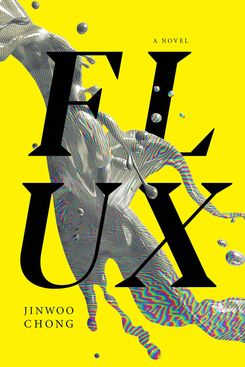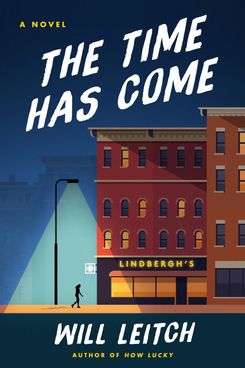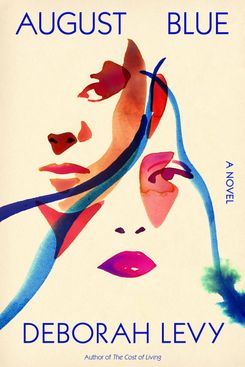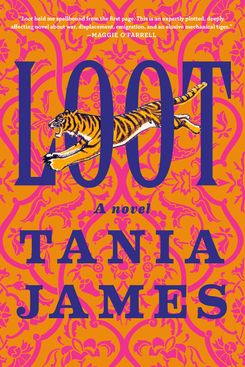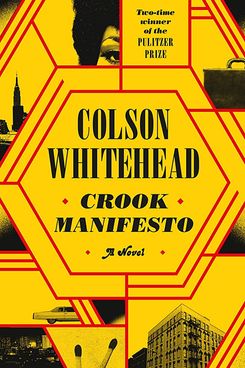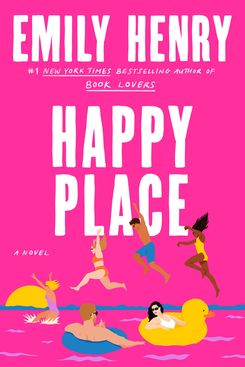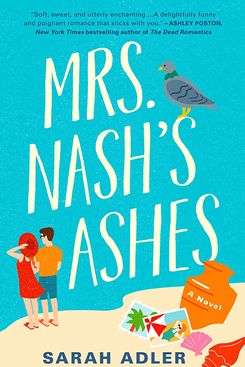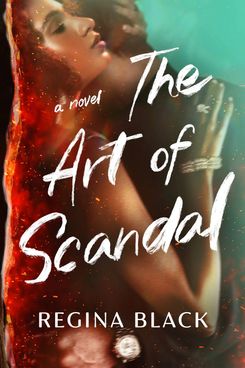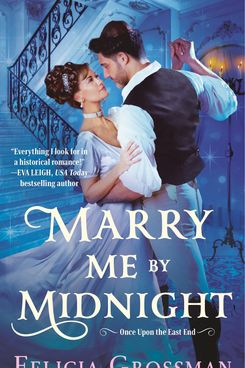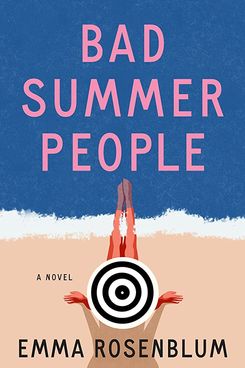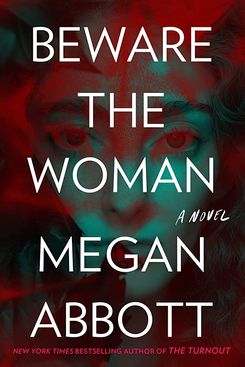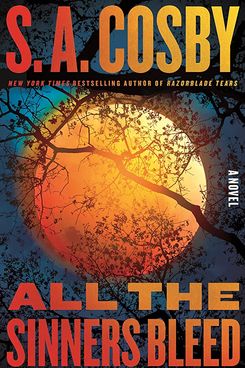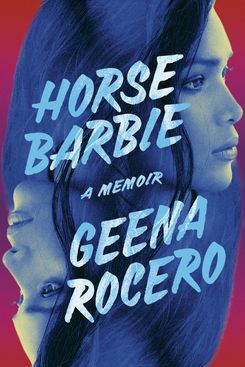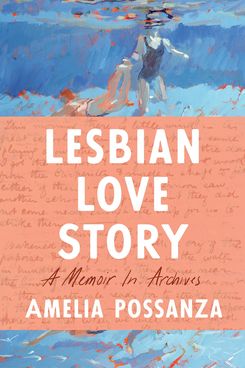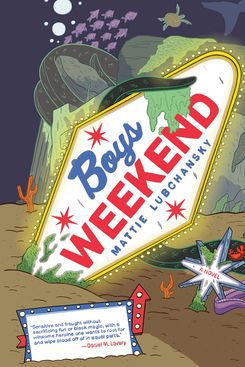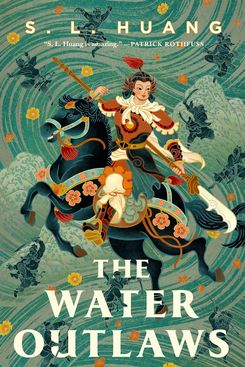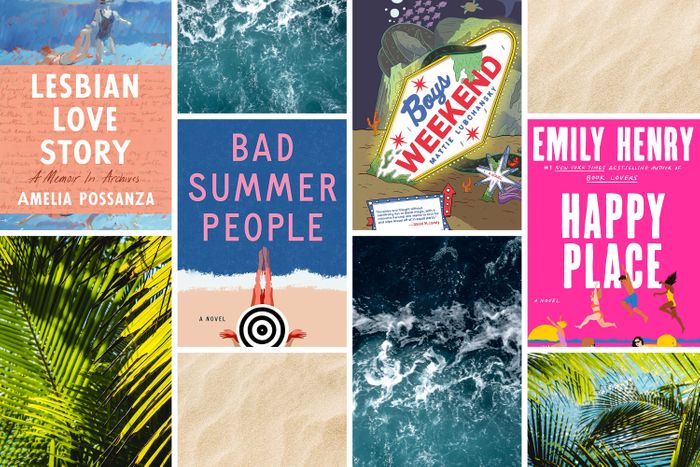
Summer is here. The days are long, school is out, and those pressing deadlines somehow feel more malleable as seemingly everyone heads out of town. Whether you plan to enjoy your own much-deserved getaway, or if you just want that relaxing feel of vacation, you’re going to need a great new book to keep you company as you unplug.
When we looked through the exciting offerings of this spring and summer to find the titles worthy of your tote bag, Vulture asked our contributors to take an expansive view of “beach reads.” Of course we included picks on this list with sunny locales, sizzling romances, and sudsy intrigue — but we also found books with the kind of thought-provoking themes that might inspire deep conversations by the late-night campfire; memoirs that turn your day trip into a full escape into someone else’s life; and mysterious narratives so engrossing you’ll forget to check those work emails. Any book you bring to your oversize towel can be a beach read, and we wanted to find an option — or three — to suit a wide variety of bibliophiles. There’s plenty of room under this umbrella, so grab a spot in the shade and get reading.
General Fiction
.
For the reader who wants to lose all sense of time:
Entering the arena of literary-fiction novels about nefarious tech start-ups is this spring’s Flux, and it’s especially good. The company here, also called Flux, deals in ultrapowerful batteries but has accidentally messed with the nature of time, to the delight of its charismatic founder, Io Emsworth (she’s a little like if Elizabeth Holmes had actually made something new — though her invention could be world-ruining). The narrative perspective hops around, but the heart of the story is with 28-year-old Brandon, a freshly laid-off media drone who obsesses over old TV and tries not to revisit his memories of his mother’s death. When he’s recruited to work at Flux, everything — his relationships, his sense of control, time itself — starts to shift violently. —Emma Alpern
.
For the reader who would do anything to escape the city:
Imagine John Cheever’s “The Swimmer,” but the main character is an escort paddling her way through the Hamptons, repeatedly pulling herself together and switching on the charm in spite of her hunger, her busted cell phone, and her increasing sense of desperation. When the novel — by the author of The Girls — begins, Alex is gingerly inhabiting the giant beach house of a very wealthy man many years her senior. She understands that she must make herself unobtrusive; that’s especially important now that she’s dodged thousands in back rent and stolen cash, which means she can’t by any means return to the city. It’s not long, though, before she pisses off her benefactor, who unceremoniously kicks her out. Rather than taking the LIRR back to Manhattan, she avails herself of all the ritzy resort town has to offer, conning personal assistants, college boys, bored nannies, and one memorably pathetic lonely rich girl. —E.A.
.
For the reader who wants a bit of hope in our current climate:
Lindbergh’s Pharmacy, with its kindly service and milkshakes at the soda counter, is the kind of cloyingly quaint local institution that’s cherished by generations of neighbors. It’s unclear at first why Tina Lamm is preparing herself to break into the store, armed with a gun and ready to expose the Lindbergh family, which she says needs to answer for its crimes. But Theo Lindbergh — back in town to take over the shop and forced to stare down his father’s complex legacy — might be the only person to get where she’s coming from. The novel, by frequent Vulture contributor Will Leitch, is not a mystery, exactly, but the story that unfolds — told through a handful of characters, mostly unknown to one another, whose lives move toward convergence — sometimes fits together like one. Instead, it takes an empathetic eye to a collection of people in Athens, Georgia, whose lives have been buffeted by COVID, disenfranchisement, and Trumpism — and imagines how goodwill between strangers might still be possible. —E.A.
.
For the reader who longs for a surreal trip through Europe:
It starts with a disastrous performance of Rachmaninov in Vienna — so bad that our protagonist, Elsa, a former child-prodigy pianist who’s now 34, stops playing halfway through and runs all the way to Greece to teach a private pupil. Meanwhile, her wickedly talented adoptive father, who’s also her piano teacher, tries to reach her. First, though, she sees a woman in a flea market who appears to be her double, and who buys a toy horse that she wants. In exchange, Elsa secretly takes the woman’s hat. All of this follows a kind of dream logic, but there’s also plenty of satisfyingly specific reality to this story, like the scene where Elsa notices six cans of beer and a book about the director Agnès Varda in a 30-something man’s bag. Three-time Booker Prize nominee Deborah Levy’s latest novel (sandwiched between her “living autobiography” project) is short and elegant with a surreal layer. —E.A.
.
For the reader who wants their fiction served with a side of history:
In 18th-century Mysore, India, a teenage woodworker named Abbas is summoned to the palace of the impetuous Tipu Sultan, who wants his help making “automatons” — intricately designed proto-machines built to dazzle his allies and enemies. Abbas is there to assist the Frenchman Lucien Du Leze, a watchmaker who’s homesick to the point of suicidality. Their work comes at a pivotal moment, when the British East India Company is making its way to Mysore, throwing off the balance of the powerful trade state and plundering whatever they can. At the center of it all is Abbas and Du Leze’s gruesome masterpiece: an automaton, complete with sound effects, of a tiger mauling a European man (which really exists!). Loot is lovingly drawn and compulsively readable, with all the pleasures and detail of stellar historical fiction. —E.A.
.
For the reader who spent their last vacation reading Harlem Shuffle:
Through his career, Colson Whitehead has moved seamlessly from genre to genre with forays into horror, historical fiction, and satirical speculative fiction. But perhaps his most fun-to-read book is 2021’s Harlem Shuffle, a clever crime novel that is as shrewd about race and class and power as it is propulsive. When we were first introduced to furniture-store salesman and small-time criminal Ray Carney, he was building a life uptown in the 1960s. This second book in Whitehead’s proposed Harlem Trilogy finds Ray in New York City’s volatile 1970s and all of the seaminess that comes with it. Having decided to give up his life of petty — and not-so-petty — crime to focus on his family, it appears that Ray is officially out of the game until, of course, he isn’t. Who knows what lies in store for Ray and his associates (and enemies!) this time around, but it seems guaranteed that the schemes will be elaborate, the historical details meticulous, and the dialogue scintillating. —Maris Kreizman (from our list “14 Books We Can’t Wait to Read This Summer.”)
Romance Novels
.
For the reader whose ideal beach read is Beach Read:
Henry, the New York Times best-selling author of Beach Read and People We Meet on Vacation, has always proven a knack for walking the emotional tightrope between angst and sweeping romance. Happy Place is no exception, filled with enchanting prose and a love story that doesn’t necessarily resemble anything she’s written before. Harriet and Wyn seem like the perfect couple from the outside looking in, but they’re keeping a secret from their loved ones: they’ve been split up for the last few months. Surely it won’t be that tough to lie through their teeth while shacking up at the Maine cottage that has played host to their friend group’s yearly vacation for the last ten years. Truth be told, this book is just as much about platonic love as it is about romance, but you’ll be weeping (in a good way) behind your oversize sunglasses regardless by the time you turn the final page. —Carly Lane
.
For the reader ready to hit the open road:
Road trips are well-tread territory when it comes to vacation reads, but Adler’s debut novel is about more than a cross-country drive full of high jinks — it’s also a thoughtful, poignant examination of grief and loss. Millicent never envisioned that she’d be transporting her elderly BFF’s ashes from D.C. to Florida, but she’s also compelled to give Mrs. Nash a happily ever after of her own, even from the afterlife. However, her companion for this trip, pessimistic writer Hollis, is much more skeptical when it comes to the possibility of happy endings. The farther they drive, and the wilder their pit stops, the more Millie realizes that she might be able to convince Hollis of the power of love after all — not just through Mrs. Nash’s last wish, but for the two of them, together. —C.L.
.
For the reader with a passion for sexy Shonda Rhimes network dramas:
In Regina Black’s debut novel, Rachel Abbott has always concerned herself with being the perfect mayor’s wife, but when her husband Matt sends her a text that was very much meant for someone else, she decides then and there that divorce is in the cards. With Matt’s reelection campaign ramping up, however, a split would prove disastrous in the headlines, so the couple strikes a deal for Rachel to keep playing her part — at least for the next several weeks. Things become even more complicated, however, when Nathan, a young, handsome artist, catches Rachel’s eye, and she has to decide whether the chance for real love is worth causing a real scandal after all. —C.L.
.
For the reader with a passion for swoon-worthy Shonda Rhimes Netflix period dramas:
If you, like just about everyone else, tuned in for Queen Charlotte this May, then a historical romance might be just the thing to make your seaside retreat even more diverting. The first installment in Grossman’s newest, swoony, fairy-tale-inspired series delivers a spectacular twist on the Cinderella story. Isabella Lira is a feisty and independent heroine on par with the ladies of the Bridgerton-verse, an heiress who is quickly looking to wed someone in order to secure the future of her family’s business. Enter Aaron Ellenberg, caretaker of the local synagogue, whom Isabella seeks out with an offer: If he helps her pinpoint the best suitors to marry, she’ll make sure he’s compensated beyond his imaginings. A captivating setting, a masterful weaving of history and romance, and an utterly besotted hero make this novel a must-read not just of the summer, but of the year. —C.L.
Mysteries and Thrillers
.
For the reader weary of the elites who own summer homes:
When a dead body is discovered on Salcombe’s boardwalk, various members of a close-knit Fire Island community fall under suspicion. Teeming with liars, cheaters, and tennis-obsessed upper-crusters, this domestic drama told from varying viewpoints reads like a frothy tale of socialite scandal. But then about two-thirds of the way in, a literal and metaphorical storm rages through. The wrath of drunk spinsters, grifting country-club coaches, and scorned husbands is on full display, with the sudsy escapades culminating in someone’s untimely exit. Even if your income bracket is a far cry from that of its protagonists, this novel’s sure to make a poolside splash no matter where you spend your summer. —Jessica Gentile
.
For the reader on a dreaded family vacation:
Pregnant Jacy gets more than she bargains for when she agrees to spend the Fourth of July at her father-in-law’s rustic cabin in the remote Michigan wilderness. What starts as a seemingly idyllic getaway soon transforms into a claustrophobic family nightmare, one that threatens the fate of her child-to-be. Imagine Get Out but with feminist themes and you might get something akin to this novel. It’s dripping with tense confrontations, curiously dead wives, and the gendered expectations that accompany both. It’s a suspenseful page-turner best read if you’re looking to escape your own family drama in favor of someone else’s decidedly more dangerous exploits. —J.G.
.
For the reader who can’t wait for the return of True Detective:
S.A. Cosby is a proven master of crime fiction, and All the Sinners Bleed continues his hot streak. When sleepy Charon County, Virginia, gets its first Black sheriff, a series of unnerving shootings occur. Over the course of the investigation, disturbing crimes amid a town’s troubling racial history come to light. This socially conscious southern noir is about as violent and grizzly as novels get — a heavy but necessary read for those sultry nights steeped in moonlight and moonshine where the ugly truth gets the justice and the reckoning it deserves. —J.G.
Memoirs
.
For the reader traveling with family baggage:
Alexandra Auder’s childhood sounds like the stuff of legend in Don’t Call Me Home. She grew up largely unsupervised in 1970s New York, living in the bohemian Chelsea Hotel with her Andy Warhol–muse mother, Viva Superstar, and a younger sister she had to parent (former child actor and recent Transparent star Gaby Hoffmann), with visits from her filmmaker father, Michel Auder, here and there. She recounts gritty, cinematic stories — playing, at 9 years old, the daughter of a dominatrix in one of her father’s films; traveling New York above the streets, from rooftop to rooftop; acting as counselor to a pregnant Viva as she debated getting an abortion — with a matter-of-factness that resists shock value. Her upbringing might raise some hackles in our climate of hyperinvolved, conscious parenting, but Auder’s story isn’t condemnation or a cautionary tale: It might even be an argument for a slight loosening of those reins. Don’t Call Me Home is an ode to hard-won resilience, life in the margins, and a fraught, entangled, but deeply loving relationship between a mother and daughter. —Arianna Rebolini
.
For the reader thinking about starting over:
When trans model and activist Geena Rocero moved from the Philippines to the U.S. as a teen in the ’90s, she left behind a celebrated career as the highest-earning trans beauty queen in a country where trans beauty pageants are beloved national pastimes and gender fluidity isn’t met with outrage. However, this cultural acceptance in her birthplace didn’t come with legal rights or protection. In America, Rocero was able to start fresh with documents that affirmed her gender, but she sacrificed the freedom of living openly as a trans woman. Interspersed with vivid, captivating, and often hilarious behind-the-scenes stories about the pursuit of fame — on music-video sets, gaining entry into exclusive clubs and parties — Horse Barbie recounts Rocero’s painful decision to hide her trans identity as she pursued a modeling career in New York, and her empowering journey toward reclaiming her true self. —A.R.
.
For the reader looking for a community of their own:
Growing up, Amelia Possanza was desperate for stories of lesbians and their romances. When she moved to Brooklyn as an adult, she was relieved to find queer spaces but frustrated by their being mostly populated by gay men. So, in pursuit of a better understanding of her community and herself, she turned to history, becoming a self-described “collector of lesbians.” Lesbian Love Story is the result of that work, gracefully weaving thoroughly researched and wide-ranging biographies of lesbians throughout the 20th century (plus a dreamy detour to 595 B.C. in examination of Sappho and the lineage and weight of the word “lesbian”) with personal narrative. Possanza brings us along on her investigation as she bicycles through New York to archives and interviews, comparing these women’s discovery and construction of community with her pursuit of the same. Alongside the story of renowned golfer Babe Didrikson Zaharias, she describes her marginalized experience as a swimmer; she compares U.S. Navy worker Rusty Brown’s lifetime spent — and persecution for — dressing “as a man” with her rebellion against dress codes and institutional expectations of gender performance. It’s a brilliant and beautifully written ode to women who love women and the importance of their visibility. —A.R.
Other genre fiction
.
For the reader who is horrified by yet another exorbitant bachelor/bachelorette weekend:
In Mattie Lubchansky’s horror-satire graphic novel Boys Weekend, Sammie, a recently out nonbinary femme, attends a bachelor party for their college friend Adam. Sammie’s built a really good life, with a thriving community of queer loved ones and a supportive spouse, but Adam and the other partygoers are largely cis, straight tech bros who have no apparent interest in or curiosity about Sammie’s evolution and transition. Sammie joins the party in El Campo, a permissive, hedonistic Vegas-on-steroids corporate resort island in the Atlantic, and is immediately inundated by slights ranging from casual misgendering and angry stares to wildly offensive questions about their sex life. They’re trying their best to just get through the trip, but on top of the death-by-a-thousand-cuts emotional toll of the bachelor party, there’s something much more sinister going on in El Campo. Lubchansky, an award-winning cartoonist and illustrator, brings the book to life with lively, bold artwork, illuminating the book’s techno-dystopian world with sly humor and hinting at the eldritch foundations on which the island was built. Boys Weekend is tightly constructed — you can read this one in an afternoon — but it rewards lingering over: Humor and horror are beautifully balanced in support of the emotional arc of Sammie’s story. —Emily Hughes
.
For the reader longing for a fantastic epic:
Though it’s recognized as one of the four great classical novels of the Chinese canon, Shi Nai’an’s 14th-century novel Water Margin isn’t the most common cultural touchstone for most American English-language readers. S.L. Huang’s vibrant, queer reimagining hopes to change that. In a land dominated by a corrupt government, the Bandits of Liangshan stand strong, targeting the wealthy and powerful — and maybe, just maybe, bringing down an empire. Like those in the source material, Huang’s bandits are a motley crew of outcasts and others; unlike those in the source material, however, these bandits are queer and genderqueer people tired of being pushed to the margins. At once a boisterous martial-arts epic, an intricate heist story, and an all too timely tale of resistance against tyrannical institutions, The Water Outlaws is also unusually engrossing (you may want to set some phone alarms so you remember to reapply your sunscreen). In addition to being a Hugo Award winner, polymath Huang is a Hollywood stunt performer and armorer, able to write scenes of intricate combat with effortless clarity and breathless pacing. This novel reads like a movie in the best way. —E.H.


